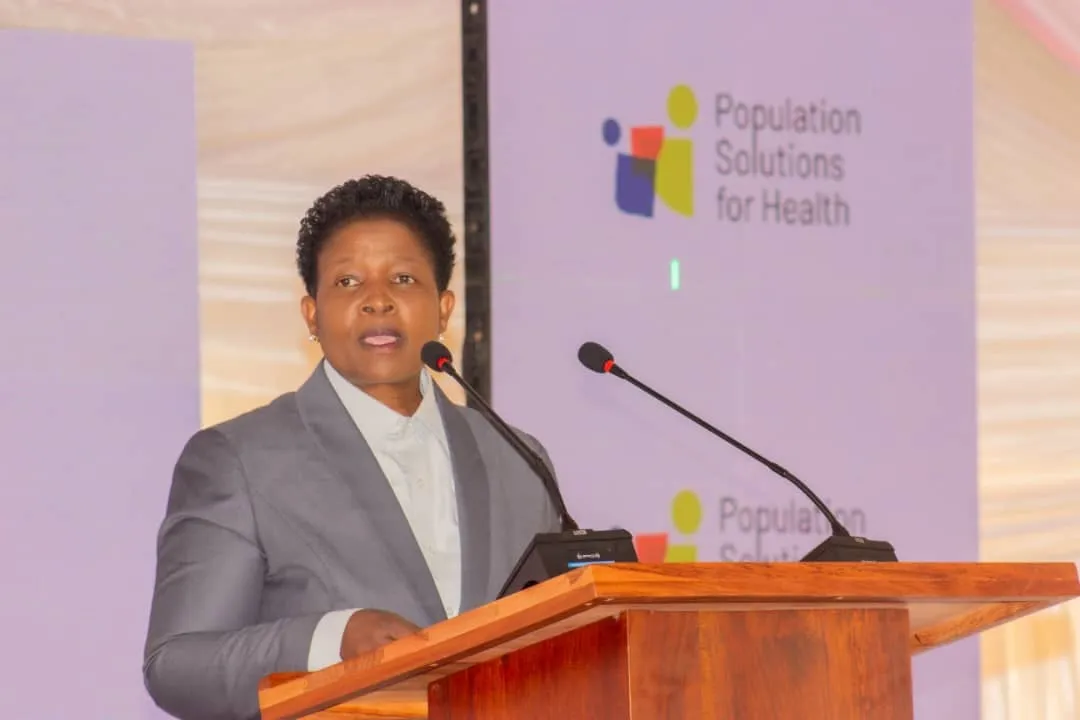It is both an honor and a privilege to stand before you as we mark another significant milestone in our national response to one of the most pressing social and public health crises confronting our country,” she said.
Dr Dinha highlighted how drug and substance abuse continues to destroy potential, break families, and threaten communities across the nation.
She outlined the government’s multi-sectoral approach under President Emmerson Mnangagwa’s leadership, referencing the Zimbabwe Multi-Sectoral Drug and Substance Abuse Plan 2024–2030 launched last year. “This plan lays out a comprehensive national framework with seven interlinked pillars including supply and demand reduction, harm reduction, treatment, rehabilitation, and resource mobilization,” she explained.
Dr Dinha also applauded law enforcement’s intensified operations to disrupt drug trafficking, stating these actions send a clear message that “Zimbabwe will not tolerate those who profit from the destruction of lives. ”While enforcement is crucial, Dr Dinha emphasized that rehabilitation and support are equally important.
She cited new state-run rehabilitation centers in Victoria Falls, Kwekwe, and Bindura providing integrated medical, psychological, and vocational services.
She praised the Angel of Hope Foundation, led by the First Lady Auxillia Mnangagwa, for its rehabilitation center in Harare, calling these centers “sanctuaries of healing, resilience, and renewal. ”Dr Dinha issued a heartfelt appeal to media and private sector partners to avoid exploiting vulnerable individuals by sharing images or videos of people during their most fragile moments. “Let us protect, support, and uplift survivors to reduce stigma and promote inclusive recovery,” she urged, affirming that “every Zimbabwean deserves a second chance. ”DAG Sundelin, Deputy Head of Mission at the Embassy of Sweden, reiterated Sweden’s commitment to supporting Zimbabwe’s drug prevention efforts.
He noted that the embassy has funded the campaign with 20 million Swedish kronor over three years and praised the government’s initiatives including the National Resource Mobilization Programme.
Sundelin stressed the importance of prevention, especially among youth. “This initiative focuses on engaging youth, who are the cornerstone and future of Zimbabwe,” he said.
He emphasized that preventing drug use reduces future costs linked to medical treatment for mental health, HIV, and other related issues.
Sundelin also highlighted how the campaign incorporates caregivers’ experiences and the influential voices of musicians and faith leaders who help steer young people away from drugs. “Young people value information from their influencers, and faith leaders serve as first points of support within communities,” he explained.
Kumbirai Chatora, Director Social Marketing at Population Solutions for Health, described Phase Two as an evolution from the initial campaign launched in 2024. “This campaign is not just a campaign; it’s a movement that aims to empower our youth and unite communities against drug and substance abuse,” he said.
Drawing from feedback from youth and caregivers, Chatora explained the campaign’s focus on practical skills to resist peer pressure, make informed decisions about friendships, and develop healthier ways to cope with stress.
He emphasized the critical role of caregivers and community influencers in supporting young people’s prevention and recovery journeys.
Chatora welcomed new campaign champions and thanked previous ones for their courage and ongoing community work, encouraging them to continue inspiring others.
Dr Noah Taruberekera, Executive Director of Population Solutions for Health, expressed gratitude to the Embassy of Sweden for enabling the campaign’s extensive reach through mass media, digital platforms, and peer mobilization. “Your partnership is crucial to our work tackling negative societal norms such as drug abuse, gender-based violence, and child marriage,” he said.
Dr Taruberekera praised campaign champions, celebrities, and religious leaders for using their influence to inspire youth to make positive choices and avoid drugs.
He urged young people to raise their voices as advocates and reminded the audience that “it takes a village to raise a child. ” He called for collective commitment to provide the support necessary for young people to overcome addiction and its destructive effects on society.
The launch of Phase Two of the “Strength is in You” campaign marks a renewed and strengthened national effort to combat drug abuse through collaboration, community engagement, and empowerment.
As Dr Dinha poignantly concluded, “The strength is in all of us.
The strength to resist.
The strength to recover.
The strength to rebuild lives, families, and communities. ” With the combined efforts of government, international partners, communities, and youth, Zimbabwe moves closer to achieving a drug-free future.
Tweet
Source: HealthTimes. 🔗 Read Full Article
All Zim News is a central hub for all things Zimbabwean, curating news from across the country so no story is missed.
Alongside aggregation, our team of nationwide reporters provides real-time, on-the-ground coverage.
Stay informed and connected — reach us at admin@allzimnews. com.
